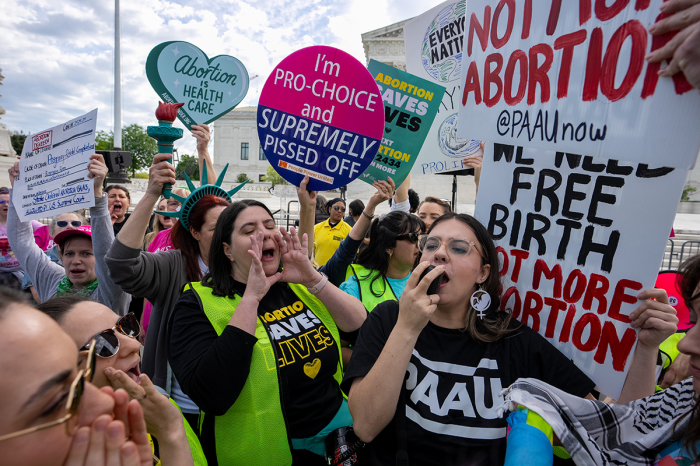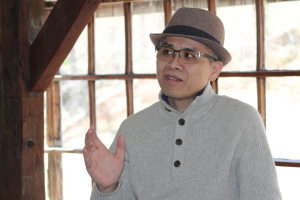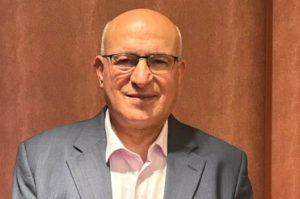Supreme Court weighs scope of Idaho abortion law in first major case since Roe v. Wade reversal

The U.S. Supreme Court's left-leaning justices grilled Idaho's attorney general over the state's refusal to accept federal guidance requiring emergency abortions as he maintains that the federal government can't require hospitals to conduct procedures that violate state law.
On Wednesday, the Supreme Court heard oral arguments in the consolidated cases of Moyle v. United States and Idaho v. United States, a case questioning if the Emergency Medical Treatment and Labor Act requires hospitals to provide abortions.
EMTALA was passed in 1986 and focuses on "public access to emergency services regardless of ability to pay," requiring hospitals participating in Medicare to provide medical services to all people.
"Hospitals are then required to provide stabilizing treatment for patients with EMCs. If a hospital is unable to stabilize a patient within its capability, or if the patient requests, an appropriate transfer should be implemented," explains an EMTALA information page.
In July 2022, shortly after the Supreme Court overturned Roe v. Wade and enabled states to once again regulate abortion in their borders, the U.S. Department of Health and Human Services issued guidance claiming that EMTALA required hospital emergency staff to provide abortions.
Joshua Turner, deputy solicitor general for Idaho, argued before the high court that HHS has given an "unlimited reading" of EMTALA, going beyond its original intention.
"States regulate the practice of medicine," Turner said. "If ER doctors can perform whatever treatment they determine is appropriate, then doctors can ignore not only state abortion laws, but also state regulations on opioid use, and informed consent requirements."
Turner received critical questions and comments from progressive Justices Sonia Sotomayor, Ketanji Brown Jackson and Elena Kagan, with some questions centered on abortion access and Idaho's Defense of Life Act. The law, enacted in 2022, restricts most abortions except in cases of rape and incest or when "necessary to prevent the death of the pregnant woman."
Sotomayor was concerned that Turner was arguing that "there is no federal law on the book that prohibits any state from saying 'even if a woman will die, you can't perform an abortion,'" and claimed that there were some states with abortion bans "that don't even have" an exception for saving the mother's life.
When Turner countered, "I know of no state that does not include a life-saving exception," Sotomayor interrupted by saying, "Some have been debating it, at least."
Later, Sotomayor gave an example of a pregnant woman in Florida who needed an abortion to save her life. The procedure was delayed because she was not yet experiencing a life-threatening situation.
Turner responded that Idaho law does allow doctors "in good faith to determine that life-saving care was necessary" and perform an abortion even before a woman was to the point of death.
Justice Samuel Alito, one of the court's more conservative justices, indirectly critiqued Sotomayor's line of questioning. He told Turner, "You have been presented here today with very quick summaries of cases, and you asked to provide a snap judgment about what would be appropriate in those particular cases."
"I think you've hardly been given an opportunity to answer some of the hypotheticals," Alito added, saying a professional doctor would say, "This is not how I practice medicine; I need to know a lot more about the individual case."
Kagan accused Idaho of engaging in "abortion exceptionalism," claiming that the state was saying, "We're going to accept" professional medical standards of care "with respect to every other condition, but not with respect to abortion."
"Abortion isn't exceptional," Turner responded. "There are numerous cases where states intervene and 'say the standard of care in this circumstance for this condition is X not Y.'"
As an example, Turner mentioned how different states have different time limits for how long a hospital is allowed to treat a patient who is in chronic pain with opioids.
Kagan said that treatments for ectopic pregnancies could be threatened under Turner's reasoning. He responded that "that understanding is a humble one" to explain that states were "the primary care providers for their citizens, not the federal government."
"It may be too 'humble' for women's health," she replied.
U.S. Solicitor General Elizabeth Prelogar of the Justice Department argued in favor of the Biden administration's EMTALA guidance, rejecting the claim that the case was about abortion bans.
"Even states that have sharply restricted access to abortion after Dobbsgenerally allow exceptions to safeguard the mother's health," Prelogar said. "But Idaho makes termination a felony punishable by years of imprisonment unless it is necessary to prevent the woman's death."
Prelogar argued that Idaho's abortion law makes it harder for pregnant women facing severe but not life-threatening health problems to get necessary medical care at hospitals.
"If a woman comes to an emergency room facing a grave threat to her health, but she isn't yet facing death, doctors either have to delay treatment and allow her condition to materially deteriorate, or they're airlifting her out of the state," she said.
Chief Justice John Roberts asked Prelogar about whether the EMTALA guidance would force religious hospitals to violate their conscientious objections to performing abortions.
"There are federal conscience protections that apply at the entity level to hospitals," said Prelogar, adding that, according to an HHS report, there were no known hospitals that "had a blanket objection to providing life-preserving and health-preserving pregnancy termination care."
When asked about individual doctors who might be opposed to performing abortions on conscience grounds, Prelogar said that they also had federal conscience protections.
"If an individual doctor has a conscience objection to provide pregnancy termination, EMTALA itself imposes obligations at the entity level and the hospital should have plans in place to honor the individual doctor's conscience objection while ensuring appropriate staffing for emergency care," she explained.
When asked by Roberts what would happen if all the doctors on staff were personally opposed to performing abortions, Preloger replied that EMTALA "could not override" the objections and that any consequence would fall on the hospital, not the doctors.




























